Jaromil Jireš
출생 : 1935-12-10, Bratislava, Czechoslovakia [now Slovak Republic]
사망 : 2001-10-24
약력
Jaromil Jireš was a director associated with the Czechoslovak New Wave movement. His 1963 film The Cry was entered into the 1964 Cannes Film Festival. It is often described as the first film of the Czechoslovak New Wave, a movement known for its dark humor, use of non-professional actors, and "art-cinema realism".

Self
An epic exploration of the Czechoslovak New Wave cinema of the 1960s and 70s, structured around a series of conversations with one of its most acclaimed exponents - Closely Observed Trains director Jiří Menzel.

Screenplay
An intimate psychological film which elaborates the Faustian theme about the dispute between the body and the soul - a study on human identity. Two young doctors carry out the surgical exchange of the brains of two women who are dying after a car accident - a young girl and member of a criminal gang, and a lonely seventy-year-old associate professor of oriental studies. The young girl wakes from the operation thinking like the elderly intellectual and tries in vain to live with her new identity. (https://www.filmovyprehled.cz/en/film/22344/double-role)

Director
An intimate psychological film which elaborates the Faustian theme about the dispute between the body and the soul - a study on human identity. Two young doctors carry out the surgical exchange of the brains of two women who are dying after a car accident - a young girl and member of a criminal gang, and a lonely seventy-year-old associate professor of oriental studies. The young girl wakes from the operation thinking like the elderly intellectual and tries in vain to live with her new identity. (https://www.filmovyprehled.cz/en/film/22344/double-role)

Director

Director

Writer

Director

Screenplay

Director

Writer
The film tells the exciting life of the great Czech composer Leos Janácek (1854-1928), also known by the thick silver hair that crowned his head and his strong character, which could overcome the adversities of fate.

Director
The film tells the exciting life of the great Czech composer Leos Janácek (1854-1928), also known by the thick silver hair that crowned his head and his strong character, which could overcome the adversities of fate.

Screenstory

Director

Writer
Adaptation of Vladimir Paral's comic novel, which criticizes consumerism as an attitude of life.

Director
Adaptation of Vladimir Paral's comic novel, which criticizes consumerism as an attitude of life.

Writer
Marta (Lucie Patikova) was blinded in an accident brought on by her careless and indulgent younger sister. Now in a school for the blind, Marta keeps up her hope that she will one day see again, mainly because her mother - out of good intentions - has led her to believe that the blindness is only temporary. Before long, Marta comes to realize that her condition will last until she dies, and she begins to despair, hating her mother for giving her false hope. Only a dedicated psychologist, Dr. Mos (Oldrich Navratil) seems to have the means of retrieving Marta from her depression.

Director
Marta (Lucie Patikova) was blinded in an accident brought on by her careless and indulgent younger sister. Now in a school for the blind, Marta keeps up her hope that she will one day see again, mainly because her mother - out of good intentions - has led her to believe that the blindness is only temporary. Before long, Marta comes to realize that her condition will last until she dies, and she begins to despair, hating her mother for giving her false hope. Only a dedicated psychologist, Dr. Mos (Oldrich Navratil) seems to have the means of retrieving Marta from her depression.

Director
Story about fate, and their fatal consequences.

Writer
A twelve-year-old is looking for his biological parents after discovering the fact that he was adopted.

Director
A twelve-year-old is looking for his biological parents after discovering the fact that he was adopted.

Director
In an unusual, apolitical approach, director Jaromil Jires has fashioned a standard drama that features an older lawyer with failing health who goes to practice in the countryside. His series of odd court cases reveals more about the human condition than about law. In one of these litigations a wayward nephew has cheated his elderly aunt out of her savings. In court, the nephew insists the money was a gift, but his aunt explains she only gave him the money as a loan. Although the lawyer technically wins the case, everything of value seems lost in the meantime. His services are paid for in rabbits because the aunt has no currency, and in the end, the nephew cons his aunt into parting with her savings anyway. Other cases expose similar types of petty corruption.

Screenplay
Good-looking Edita Beningerová (Jana Brejchová) arrives at a chemical factory in the North Bohemian town of Ústí nad Labem together with her young assistant Nada (Zlata Adamovská). She is hoping that her ex-husband, outstanding practical chemical engineer Vik Panc (Eduard Cupák), will help her conduct an experiment to validate her proposed theoretical method of isolating cholesterol from lanolin. The success of Edita's invention is crucial for her career at the Prague Institute of Chemistry. Vik's roommate from his hostel Bréta (Ivan Vyskocil) is thrilled. He will finally meet the mysterious and fascinating Edita about whom he has learned so much from Vik.

Director
Good-looking Edita Beningerová (Jana Brejchová) arrives at a chemical factory in the North Bohemian town of Ústí nad Labem together with her young assistant Nada (Zlata Adamovská). She is hoping that her ex-husband, outstanding practical chemical engineer Vik Panc (Eduard Cupák), will help her conduct an experiment to validate her proposed theoretical method of isolating cholesterol from lanolin. The success of Edita's invention is crucial for her career at the Prague Institute of Chemistry. Vik's roommate from his hostel Bréta (Ivan Vyskocil) is thrilled. He will finally meet the mysterious and fascinating Edita about whom he has learned so much from Vik.

Screenplay

Director

Director
The late summer of 1918. Paul, Willi and Heinrich from an age-old German town are good friends, although there is a great deal that divides them. Heinrich comes from an officer's family with an army tradition and is preparing to enter cadet college. Paul's father and grandfather are workers, and Willi, left to depend on himself, works as a hotel messenger. The last year of the war is hard for everyone, but while Paul and Willi know their own minds and do not hesitate to help the war fugitives Tony and Sepp, for Heinrich everything is more complicated.

Director
A model Communist village is visited by a flying saucer.

Screenstory
Three short stories. Prague finally sees the approval of the subway construction. Thousands of individuals took part in preparing, course and finalizing construction of subway and their lives crossed at certain points of this construction.

Writer
Three short stories. Prague finally sees the approval of the subway construction. Thousands of individuals took part in preparing, course and finalizing construction of subway and their lives crossed at certain points of this construction.

Director
Three short stories. Prague finally sees the approval of the subway construction. Thousands of individuals took part in preparing, course and finalizing construction of subway and their lives crossed at certain points of this construction.

Director

Screenplay

Story
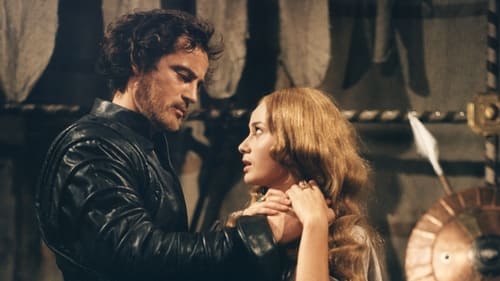
Director

Screenplay

Director

Screenplay

Story
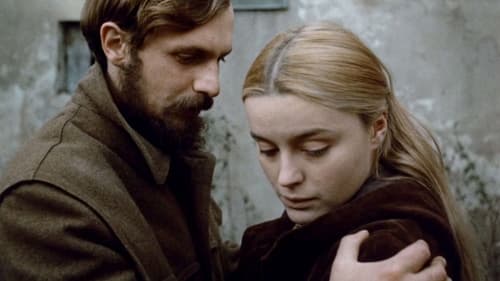
Screenplay
This film, chronicling the last days of Czech resistance fighter Maruska Kuderikova (played by Magda Vasaryova), is based on her diaries. Though she was tortured and eventually executed by the Nazis, her diaries indicate that she was optimistic for the humanity of her captors and did not by any means hate them. Told with simple dignity, this film makes clear why Maruska became a national hero.

Story
This film, chronicling the last days of Czech resistance fighter Maruska Kuderikova (played by Magda Vasaryova), is based on her diaries. Though she was tortured and eventually executed by the Nazis, her diaries indicate that she was optimistic for the humanity of her captors and did not by any means hate them. Told with simple dignity, this film makes clear why Maruska became a national hero.

Director
This film, chronicling the last days of Czech resistance fighter Maruska Kuderikova (played by Magda Vasaryova), is based on her diaries. Though she was tortured and eventually executed by the Nazis, her diaries indicate that she was optimistic for the humanity of her captors and did not by any means hate them. Told with simple dignity, this film makes clear why Maruska became a national hero.
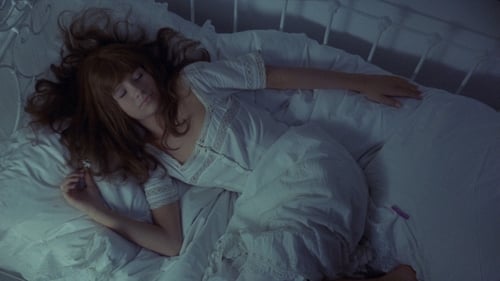
Screenplay
할머니와 함께 사는 10대 소녀 발레리는 마을 축제가 다가오면서 성적으로 각성하게 되고 혼란을 느낀다. 이글이라는 청년으로부터 한쌍의 귀걸이를 선물받으면서 발레리의 환상은 현실과 뒤섞이고 악몽이 된다. 발레리는 자신의 부모가 야수의 모습을 감춘 주교라고 상상하게 되고 할머니는 그녀의 상상 속에서 흡혈귀가 된다. 사제가 그녀를 겁탈하기 위해 뒤를 쫓고...

Director
할머니와 함께 사는 10대 소녀 발레리는 마을 축제가 다가오면서 성적으로 각성하게 되고 혼란을 느낀다. 이글이라는 청년으로부터 한쌍의 귀걸이를 선물받으면서 발레리의 환상은 현실과 뒤섞이고 악몽이 된다. 발레리는 자신의 부모가 야수의 모습을 감춘 주교라고 상상하게 되고 할머니는 그녀의 상상 속에서 흡혈귀가 된다. 사제가 그녀를 겁탈하기 위해 뒤를 쫓고...
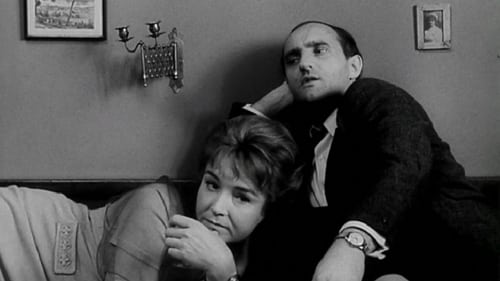
Screenplay
루드비크는 헬레나를 만나기 위해 고향으로 돌아간다. 그는 헬레나의 남편 파벨 제마네크로 인해 고초를 겪은 바 있다. 대학생 시절 체코슬로바키아 공산당 학생연맹 소속이던 둘은 절친한 사이였다. 어느 여름, 방학을 연인과 보내길 바란 루드비크는 당시 연인 마르케타가 자기 대신 공산당 연수를 택하자 엽서에 "트로츠키 만세!"라는 농담을 섞어 보낸다. 문제는 파벨이 이를 빌미로 루드비크를 당과 학교 모두에서 퇴출당하게 했다는 것이다. 심지어 그는 이후 강제 노역 부대에 끌려간다. 하지만 헬레나를 유혹해 파벨에게 복수하려는 루드비크의 계획은 우스꽝스럽게 뒤틀리고 만다.

Director
루드비크는 헬레나를 만나기 위해 고향으로 돌아간다. 그는 헬레나의 남편 파벨 제마네크로 인해 고초를 겪은 바 있다. 대학생 시절 체코슬로바키아 공산당 학생연맹 소속이던 둘은 절친한 사이였다. 어느 여름, 방학을 연인과 보내길 바란 루드비크는 당시 연인 마르케타가 자기 대신 공산당 연수를 택하자 엽서에 "트로츠키 만세!"라는 농담을 섞어 보낸다. 문제는 파벨이 이를 빌미로 루드비크를 당과 학교 모두에서 퇴출당하게 했다는 것이다. 심지어 그는 이후 강제 노역 부대에 끌려간다. 하지만 헬레나를 유혹해 파벨에게 복수하려는 루드비크의 계획은 우스꽝스럽게 뒤틀리고 만다.

Screenplay

Story

Director

Self
Documentary about the film academy in Prague and the Czech Film in 1965.
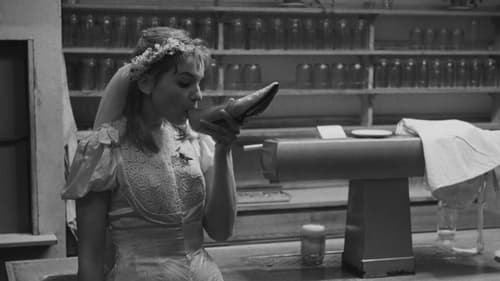
Screenplay
A manifesto of sorts for the Czech New Wave, this five-part anthology shows off the breadth of expression and the versatility of the movement’s directors. Based on stories by the legendary writer Bohumil Hrabal, the shorts range from the surreally chilling to the caustically observant to the casually romantic, but all have a cutting, wily view of the world.

Director
A manifesto of sorts for the Czech New Wave, this five-part anthology shows off the breadth of expression and the versatility of the movement’s directors. Based on stories by the legendary writer Bohumil Hrabal, the shorts range from the surreally chilling to the caustically observant to the casually romantic, but all have a cutting, wily view of the world.

Screenplay
It is the depths of winter and in the middle of a desolate landscape on a snowy slope stands a log cabin, inhabited by an old man. The man puts his last log into his stove and the warmth of the fire visibly delights him. He rocks his rocking chair energetically and sings merrily. The flames die away and the old man looks around for something to put on the fire. In the end he sacrifices the chair, but soon that too is burnt up. The man tears the remnants of posters from the walls, gathers various rags and throws everything into the stove. Then he takes an axe and gradually chops up the wooden walls of his house, although it is obvious that he cannot win this duel with cruel nature. The fire gradually eats up the planks and beams until the cabin entirely collapses. The man wants to get warm, and so runs around the dying flames. (https://www.filmovyprehled.cz/en/film/396670/the-log-cabin)

Story
It is the depths of winter and in the middle of a desolate landscape on a snowy slope stands a log cabin, inhabited by an old man. The man puts his last log into his stove and the warmth of the fire visibly delights him. He rocks his rocking chair energetically and sings merrily. The flames die away and the old man looks around for something to put on the fire. In the end he sacrifices the chair, but soon that too is burnt up. The man tears the remnants of posters from the walls, gathers various rags and throws everything into the stove. Then he takes an axe and gradually chops up the wooden walls of his house, although it is obvious that he cannot win this duel with cruel nature. The fire gradually eats up the planks and beams until the cabin entirely collapses. The man wants to get warm, and so runs around the dying flames. (https://www.filmovyprehled.cz/en/film/396670/the-log-cabin)

Director
It is the depths of winter and in the middle of a desolate landscape on a snowy slope stands a log cabin, inhabited by an old man. The man puts his last log into his stove and the warmth of the fire visibly delights him. He rocks his rocking chair energetically and sings merrily. The flames die away and the old man looks around for something to put on the fire. In the end he sacrifices the chair, but soon that too is burnt up. The man tears the remnants of posters from the walls, gathers various rags and throws everything into the stove. Then he takes an axe and gradually chops up the wooden walls of his house, although it is obvious that he cannot win this duel with cruel nature. The fire gradually eats up the planks and beams until the cabin entirely collapses. The man wants to get warm, and so runs around the dying flames. (https://www.filmovyprehled.cz/en/film/396670/the-log-cabin)

Screenplay
While a woman is in the hospital preparing to deliver her child, her husband has all day to reflect upon his wife and their relationship. As he tends to his job as a television repairman, Slavek fondly remembers how he first met Ivana and the days they spent getting to know one another. Slavek also grows increasingly aware of the environment that surrounds him and questions the society his new child will be entering. Loaded with a repeated plea for social change, this is the first feature from Czech writer/director Jaromil Jires.

Director of Photography
In a series of juxtaposed images and sounds, Jaromil Jireš comments on the tragic premature death of thousands as well as their posterity due to the atomic bomb.

Screenplay
In a series of juxtaposed images and sounds, Jaromil Jireš comments on the tragic premature death of thousands as well as their posterity due to the atomic bomb.

Director
In a series of juxtaposed images and sounds, Jaromil Jireš comments on the tragic premature death of thousands as well as their posterity due to the atomic bomb.

Director
While a woman is in the hospital preparing to deliver her child, her husband has all day to reflect upon his wife and their relationship. As he tends to his job as a television repairman, Slavek fondly remembers how he first met Ivana and the days they spent getting to know one another. Slavek also grows increasingly aware of the environment that surrounds him and questions the society his new child will be entering. Loaded with a repeated plea for social change, this is the first feature from Czech writer/director Jaromil Jires.

Director

Director
This early short by Jaromil Jireš anticipates the formal and stylistic experimentation that would characterize VALERIE AND HER WEEK OF WONDERS.

Writer
In this six-minute short, a man’s attempt to burgle a home is interrupted by a child.

Director
In this six-minute short, a man’s attempt to burgle a home is interrupted by a child.









